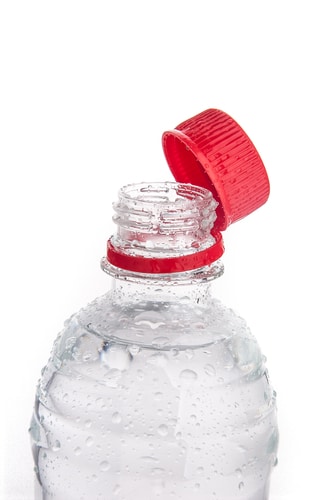It’s important to stay hydrated when you work out and unless you’re doing a workout of greater than an hour or exercising in extreme heat where you need electrolytes and carbohydrates, water will do the job. You may have seen people sipping bottled water when they exercise. Bottled water is a bit more convenient since you only have to pop the top off and sip. Plus, some people are convinced it’s better for you than tap water. That’s not surprising since bottles of bottled water usually show a picture of a pristine stream or some other image that suggests that it’s pure – but is it really?
Bottled Water versus Tap Water
Most people have heard how tap water contains impurities, even “yucky” things like prescription medications, fertilizer residue, and fecal bacteria. Not to mention chemicals and pollutants linked with an increased risk of cancer. So, in hopes of protecting their health, they reach for a container of bottled water. Unfortunately, tap water might be a better choice.
According to a study carried out by the Environmental Working Group and discussed on Medical News Today, bottled water contains just as many contaminants as water you get from your spigot. When EWG tested 10 brands of bottled water, they found an average of 8 contaminants in each – contaminants like radioactive material, medications, disinfectant chemicals, bacteria and chemicals used to make plastics. Not a very healthful combination of ingredients to say the least!
Other studies have found high levels of arsenic cancer-causing chemicals called trihalomethanes and fecal bacteria in bottled water. Some bottled water is actually tap water that’s been reprocessed. The only real difference is you had to pay more for it.
 Most Bottled Water is in Plastic Bottles
Most Bottled Water is in Plastic Bottles
Another concern about bottled water is its packaging. Plastic bottles may contain BPA, a chemical that disrupts hormones in animals and may increase the risk for health problems ranging from asthma in children to breast cancer in adults, based on research. Experts believe that small amounts of BPA can leach into liquids stored in bottles made with BPA, especially when they’re exposed to heat. Who knows how long those plastic water bottles sat in a hot warehouse before they reach your supermarket? If it’s in a plastic bottle, you may be absorbing more toxins than you are when you drink water out of your own tap.
Is There a Better Alternative To Staying Hydrated?
One option is to install a water filter at home to remove impurities from your water so you always have fresh water to drink when you work out. In the long run, you’ll save money if you’re now buying bottled water. In terms of water filters, the best choice is a reverse osmosis system since it removes virtually all toxins from your drinking water. Unfortunately, this filtering system is also the most expensive.
If you don’t want to spend the money on a reverse osmosis filter, an alternative is a system that uses a carbon filter. It removes chlorine, leads as well as some other compounds but it leaves behind some contaminants like medications and viruses. If you carry filtered water or water from your tap with you, package it in a stainless steel bottle to avoid the BPA problem. A glass container will work too, although it’s less practical than stainless steel.
You can also test your tap water for contaminants by using a water testing kit available at many hardware stores to see how pure it is.
Still Want Bottled Water To Stay Hydrated?
If you can’t live without bottled water, make sure the brand you buy is endorsed by the International Bottled Water Association. If they are, it means their product contains contaminant levels that are less than levels established by the FDA as safe.
Some bottled water manufacturers are using bio-based plastics to make water bottles. These are safer because they’re made from natural ingredients. If you can find a bottled water company that uses bio-based plastics, that’s a safer option.
The Bottom Line?
Most bottled water is no purer than what you get out of the tap. In fact, some of it DOES come from the tap. Plus, you have to worry about BPA from the plastic bottle it’s stored in. Test your own water and see whether you need a water filter. It’s an investment that’ll save you money in the long run if you’re currently buying bottled water.
References:
Medical News Today. “Bottled Water No Purer Than Tap Water”
Science Daily. “BPA Raises Risk for Childhood Asthma, Study Finds”
Breast Cancer Fund. “Bisphenol-A”
Related Articles By Cathe:
Exercise Hydration: 5 Types of Water That Are No Better Than Tap Water

